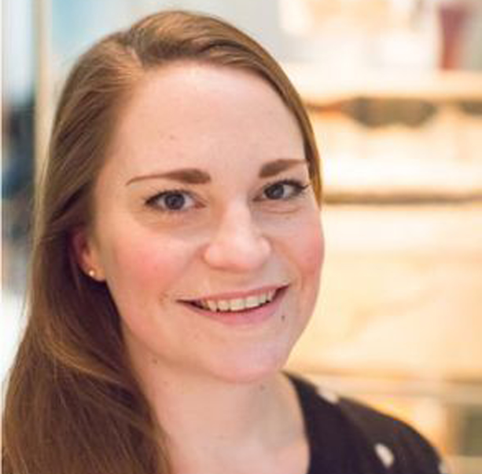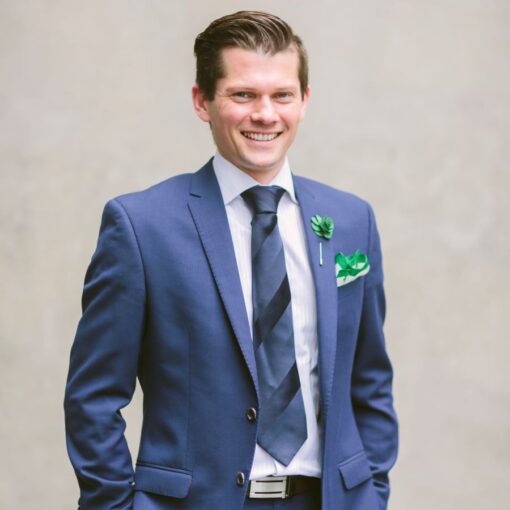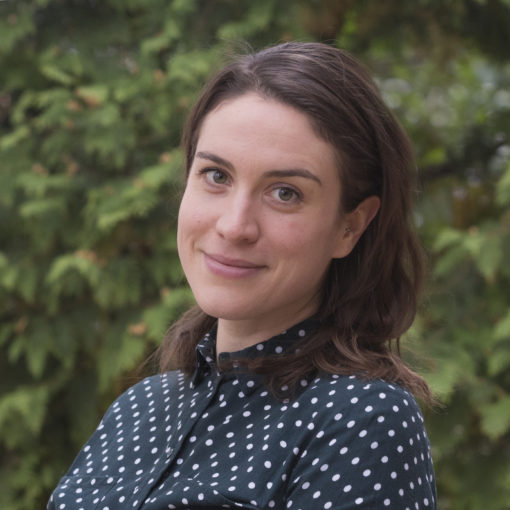PhD Archaeological Science, UCL (2018)
| Research assistant: molecular analysis | |
|---|---|
| British Museum | |
Year entered into a non-academic position: 2018
Job highlight: working with the collections
My research training set me up to…continue to research! Museums actually consider themselves to be a part of academia, although they are outside of the REF and have slightly different responsibilities
Left academia after: PhD
What’s your background?
I first studied Egyptology, then worked for a couple of years in media policy, which confirmed to me that I wanted to return to university. I studied heritage conservation which involved a year in a museum. I had always volunteered in museums during my earlier degrees and this was definitely where my interests laid. My PhD was advertised as my first baby became old enough for childcare, it perfectly combined Egyptology with heritage science, and was offered as a Collaborative Doctoral Award between UCL and the British Museum.
Why did you move away from academia?
Museums were always my primary interest, and the majority of my PhD was spent on excavation with the museum team or working in the museum. Museums consider themselves to be part of academia, they just have a different focus. Most research in the museum is focused on the collection, or on current archaeological excavations. Teaching is mainly limited to guest lecturing, and supervising master’s and PhD students. Because we are mainly concerned with our collection, work is often done in a collaborative way between scientists, conservators, and curators.
Is there anything you miss about academia?
Although academia has a problem with lack of diversity, especially in the upper ranks, this is nothing compared to museums. They can be very old fashioned and unwilling to listen or change, which is really frustrating as it makes them irrelevant institutions to lots of people when that doesn’t have to be the case.
How did you get this job? Did you face any challenges when considering a move away from academia or applying for the role?
The role was advertised as I was completing my PhD and is a fairly niche subject area as it is conducting molecular analysis of ancient Egyptian organic residues. It was easy to apply as I already worked in the department and knew everyone, but the type of analysis wasn’t the main focus of my PhD, so I had to do a lot of last minute swotting. Luckily, because I was already based in the museum, I had the opportunity to talk to the curator and see the objects before the interview.
What motivated you to/why did you choose the sector you transitioned into?
I always wanted to be in the museum rather than in a university. I love working with objects and in a public-focused institution.
Did you think you had the skills required for your current position before you started? Were you right?
I knew it would be a steep learning curve, which it was, but a lot of the skills (speaking, writing) were transferable.
How did your PhD prepare you for your current job? For example, what were the transferable skills that you developed during your PhD that are most relevant to your current job?
Because my current job is quite similar to doing a PhD, most of the skills were directly transferable.
Did you have any preconceptions about your sector that proved to be wrong?
Most of the museums I had previously volunteered in were quite small – working in a museum as large as the British Museum is a completely different experience. You don’t get to meet people in other departments very often because every department has its own corner of the labyrinthine back of house layout.
Can you describe a typical week in your job?
Often I split my time between desk research/writing and lab work. So I might plan to do lab-work every morning, and then reserve the afternoons for writing reports, papers, reading, and meeting with colleagues. At the same time, I’ll be writing abstracts and presentations for conferences, both internal and external.
What is the workplace culture like? Please include comments on work-life balance, flexibility, remote working?
I expect this varies between departments, but in mine (Scientific Research) the balance is very fair. I have two children and I get to see them every night – there is no expectation of late working. However, I have to say that I am extremely organized, and I make sure I get my work done during the day. There is occasional travel of course, but by choice. There is an expectation of delivery of high-quality research, but because our teaching commitments are low, this is achievable without working crazy hours. If you are willing, it’s easy to be dragged into side projects – I actually enjoy this and volunteer for things, but it could become a drain on time.
Do people with a PhD frequently get hired in the company/sector?
Most people who work in research in the museum have a PhD, and I’m pretty sure this is normal for curatorial staff across the sector.
Staff in other departments (education for example) are less likely to have PhDs. There is much debate in the museum sector as to which qualifications are or should be required to work in a museum, and no consensus. Certainly everyone in Scientific Research has a PhD, with the exception of technicians.
What are your favourite parts of your job?
Working with such an amazing collection and with world experts. Being able to combine my interests in science, Egyptology, and heritage.
What are your reflections on your career path?
It’s quite short so far! Although it has taken me a while to get here, due to career breaks to have babies. I’m very unsure about the future.
Do you have any advice for current graduate students and postdocs considering a career outside of academia?
Museums aren’t really outside academia and positions are notoriously badly paid, so you’d have to be really keen! If you want to work in a museum, it’s almost essential that you show interest in the sector by e.g. volunteering while completing degrees (most university museums will happily take volunteers).
What do you know now that you wish you’d known when exploring a transition?
I went straight into museum work from a museum-based PhD, so I didn’t really consider myself to be transitioning, but there are some things that are definitely worth considering when moving from one sector to another, and work culture is important. Universities are quite unique environments (as are museums) and the change in corporate attitude and the culture change from not being in a student heavy environment may be quite a shock.
Can you recommend any relevant resources, organisations or events that might help somebody new to the sector find out more about it?
Museums Association has a great website – check there for thought pieces and information about events. Also, try following museum employees on Twitter. And visit museums and form your own opinions! They all have their own approach.





